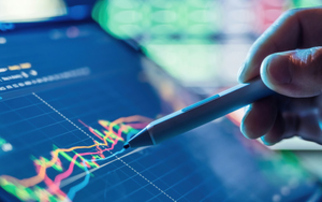The Covid-19 pandemic's impact on the stock market has been characterised by excessive stock market volatility, a dramatic market crash and perhaps an even more dramatic rebound. According to researchers, some of the market movements seen over the past year during the crisis, such as the unshaken confidence of financial institutions cannot be sufficiently explained by traditional paradigm finances.
From a behavioural finance lens, biases such as overconfidence (leading to optimism bias and miscalibration), risk aversion, and herd behaviour have fundamentally resulted in changes to the financial decision-making process.
According to behavioural finance experts Oxford Risk, investors that responded to Covid-19 uncertainty by moving more wealth into cash could have missed out. The group noted for many investors that had increased their allocation to cash during the volatile times for markets, the cost of this ‘reluctance' to invest was around 4% to 5% a year over the long-term. In addition, it estimates that the cost of the ‘Behaviour Gap' - losses due to timing decisions caused by investing more money when times are good for stock markets and less when they are not - i.e. buy high and sell low - is on average around 1.5% to 2% a year over time.
It is a challenge many advisers have had to face over the past year, as clients seek reassurance through market volatility.
Whilst the concept of biases is not a bad thing - academics often refer to them as heuristics or mental shortcuts that allow us to make decisions more efficiently - the fact that emotions can so significantly impact investment decisions means an entire area of study is dedicated to this topic called behavioural finance. This combines classical theories of economics and psychology to explain what it is that makes some investors revel in danger and others flee at the first sign of volatility.
To read the full article, click here to access your free and exclusive The Adviser Guide.












